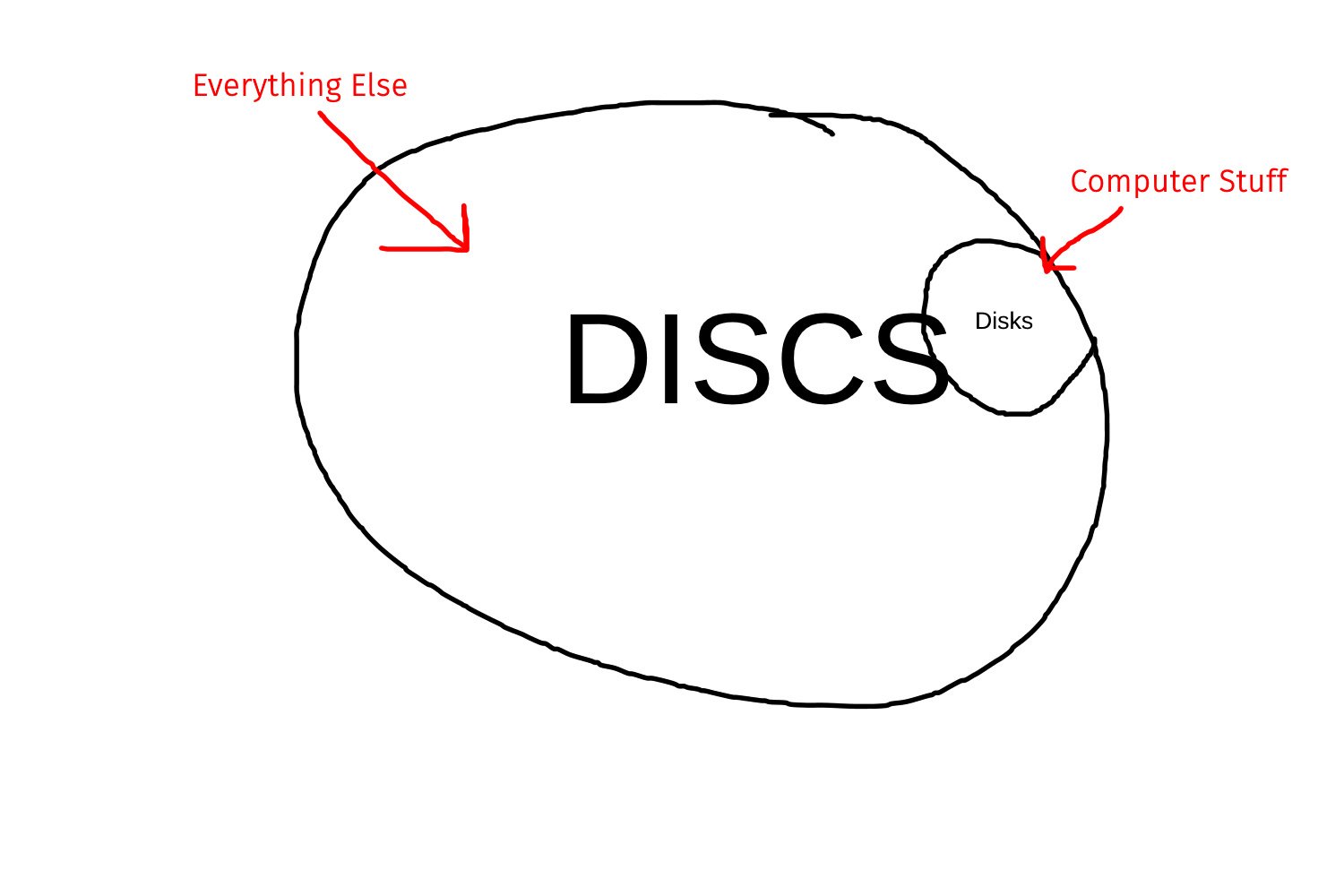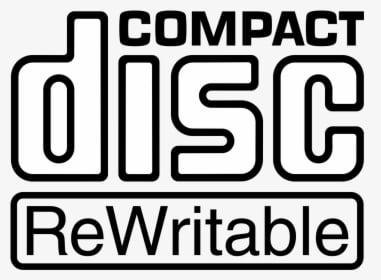I heard some people say theyre the same thing, but others are adamant that they have different meanings. Which is it?
A disk is something that contains information. It stands for Dense Inside Stored Knowledge
Dense Information Storage Circle
I am not sure, but my oldest child was looking at an English brochure for a trip to France and a asked me "what the heck is a dis-coth-a-cue? Discotheque. A Disco, a dance club. And yes disco-tek is spelled Discotheque in English.
Not in America it ain’t. Here it’s spelled “Disco is dead.”
Disk is for things that are more kiki, but disc, with that rounded off c, is for things that are more bouba.
IYKYK.
What about disq?
I’ve always known disc to refer specifically to optical media.
At its root this was originally a British vs. American English thing. However, the spelling of “disc” with a C has been used specifically as the trade name of various brands including both the throwable and optical media varieties, which have since become genericized trademarks.
For the optical media side of things, the name was coined by Phillips while they were consorting with Sony to develop the standard and named it the “Compact Disc” to compliment their already existing “Compact Cassette” product. They developed an official logo for the format which spelled it “disc.” That’s been with us ever since.
As a generalized descriptor of a flat circular object, either “disk” or “disc” is appropriate but which is preferred seems to be largely depending on which continent you’re from. The root of the word is indeed the Greek “discus,” as in the object yeeted across the playing field by Olympic contestants.
As others have said and how I always see it:
- Discs are small, circular, flat objects, e.g. the discus;
- Disks are discs used for computer stuff, e.g. floppy disk(ettes), CD-ROMs, DVD-ROMs, hard disks, and so forth…
In other words, all disks are discs, but not all discs are disks.
Here’s a shitty drawing I made to illustrate:

upvoted for your spiffy drawing, although i don’t agree with it
Lol, thanks.
What about my distinction do you disagree with, though?
I don’t think the differentiation makes any sense at all.
my attempt to simplify the above explanation; -disc =round -disk =storage
Storage can be round but not all round things are storage
You have to put a segment of “disk” outside of the “disc” set on that Venn diagram. You are forgetting about solid state disks.
But…

I was wondering how CD-RW works, if anyone else wants to know:
https://electronics.howstuffworks.com/question655.htm
They have a layer that can change between clear and opaque that is changed by having different temperatures applied to it.
Disc and disk are varient spellings of the same word that pre-exist computing. Disc is more common in British English, Disk more common in American English. But yeah since computing came along disk has also been used more for magnetic media (hard disk) while disc has been used more for optical media (compact disc). I wouldn’t be surprised if this only happened because of how the CD was marketed and branded as a “compact disc” as a trademark while hard disks and floppy disks etc were more generic terms.
In modern parlance, this has been my working understanding too:
But yeah since computing came along disk has also been used more for magnetic media (hard disk) while disc has been used more for optical media (compact disc).
Optical:
- compact disc
- laser disc
Magnetic:
- 3.5" diskette
- 800GB ard disk drive
…and just to point out there is some disagreement
Magneto-Optical , such as Sony MiniDisc, is sometimes referred to Disc for its optical properties and sometimes as a MO Disk for its magnetic properties.
Disck
Disc = round
Disk = rectangular
Well…That almost makes it too simple.
There’s been some movement over time but in general disk was used for pc because you had Hard Disk Drives. Then their counterpart the floppy diskette (disks).
Disc as a term was used for media like compact discs and subsequently digital video discs, etc. and then pc components allowing them to be read and then written to did exist for PC’s and, as such, had the disc moniker. But that’s because they were already “discs” branding wise.
USB thumb drives, being created as portable removable media for pc’s were a kind of solid state disk and so they use the k. Even NVME, being primarily storage for computing devices, can also colloquially be called “disks” but more and more people just refer to them as drives and I suspect those who refer to them as disks may do so out of older computer hardware habits and that utilities (fdisk, df, etc)call any such media a “disk”.
Disc seems to be anything with a round and flat outer appearance, where disk seems to refer to any other storage media
I think they’re the same word, though.
Same word. Different dialects.
A disk drive reading disc’s would be a disc disk drive
And if it reads 70s music records, it could be a disc disk disco drive!
disc disk
Got ‘em!
Disque
Diskette
Petit Disk
You know “disc” is actually a weird word.
Like say it a few times out loud
D I S C









